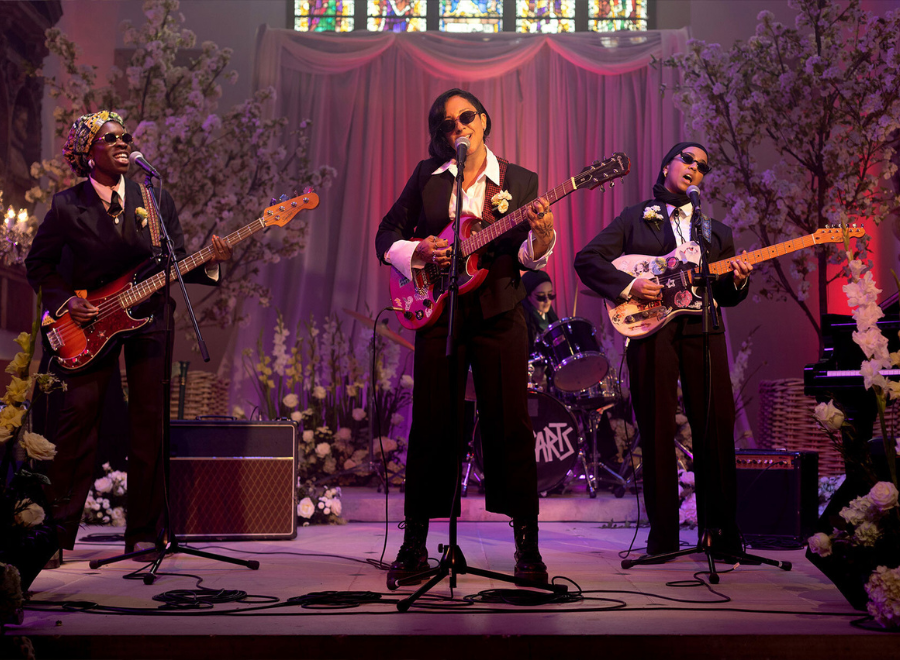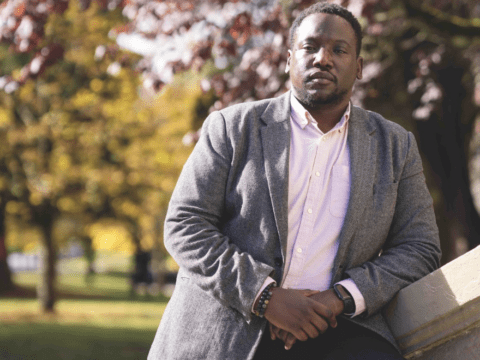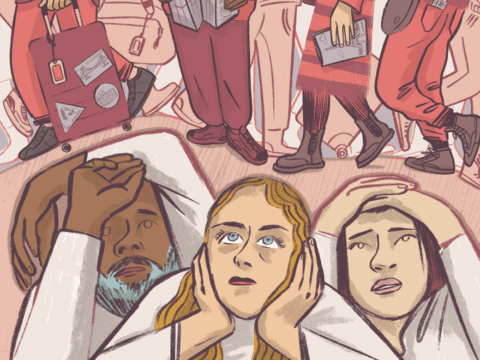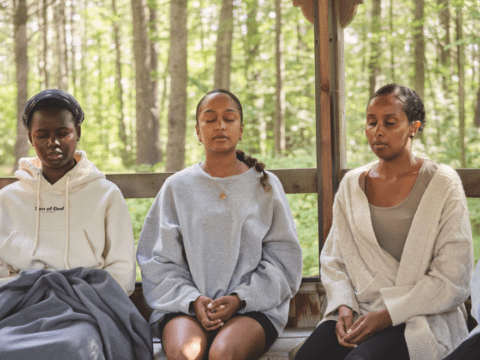When 26-year-old Amina Hussein walks into tryouts for the lead guitarist of Lady Parts, she has no intention of actually joining the all-women Muslim punk band. After all, as her parents tell a potential marriage match in the opening scene, she hates performing; her nervous disposition induces diarrhea and vomiting.
But Saira, the band’s hot-tempered and ambitious lead singer, sees potential in Amina, and a deal is struck: Amina will join Lady Parts and play alongside them in an important audition. In return, Lady Parts’ drummer, Ayesha, will set Amina up with her dreamy brother.
You may unsubscribe from any of our newsletters at any time.
Season 1 of We Are Lady Parts, a British sitcom released in 2021, follows Amina as she navigates friendships with her bandmates, gains confidence as a guitarist and searches for love. Meanwhile, Saira and the band struggle with representing themselves authentically, particularly as a group of Muslim women, while also building a following. “We simply seek to speak our truth before we’re mangled by other people’s bullshit ideas of us,” Saira says in the first episode.
At the centre of Lady Parts is a diverse cast of female Muslim protagonists, each with distinct personalities, goals and backgrounds. The show, which returned last spring with another six-episode season, emphasizes that Islam is not a monolith and vastly different people can exist in community together.
For example, Bisma, the band’s bassist and peacemaker, struggles in the show’s second season with the question of whether to continue wearing her headscarf. Saira, on the other hand, never dons a head covering, and her choice isn’t explicitly acknowledged. And Momtaz, the band’s hard-working manager, wears a niqab, confidently stating that it makes her feel closer to God.
More on Broadview:
I am a Muslim woman myself, and I am as different from the band members as they are from each other; watching Lady Parts did not feel like looking into a mirror. It did feel, however, like an honest portrayal of five young women, dealing with the sometimes funny and sometimes sad pressures of being female, being Muslim in the West and simply being human.
But the show is also wary of the politics of representation. In season one, the band gets their first big break when they are noticed by Zarina, an online influencer who aims to “uplift women of colour” with her platform. While the band is initially enthusiastic about the attention, they begin to question the story Zarina is spinning. As she interviews them, she pushes on Momtaz’s choice to wear a niqab and falsely associates Bisma’s decision to be a stay-at-home mom with her religion. She also pressures Ayesha to come out as queer, telling her that young queer Muslim girls would value her example.
The plotline serves as a cautionary tale about representation — when it’s profitable for someone else to share your story, they are going to want a say in how it’s told. And if you have a long history of stereotypes and misconceptions working against you, handing over control of your story can be a dangerous thing.
If nothing else, the bandmates can be counted on to reclaim their narrative, again and again. With their outspokenness and their punchy, reflective music, they insist on telling their own story louder than anyone else’s version of it. And it’s a story well worth listening to.
***
Amarah Hasham-Steele is a recent Broadview intern.
This article first appeared in Broadview’s January/February 2025 issue with the title “Punk Rockers and Rebel Angels.”














